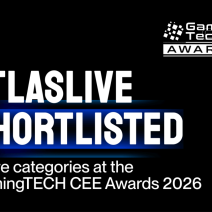Pearson, Simon & Warshaw, LLP and Kaliel PLLC: New Class Action Lawsuit Challenges Fortnite’s Sale of Loot Boxes
Pearson, Simon & Warshaw, LLP and Kaliel PLLC filed suit, Altes v. Epic Games, Inc. Case No. 2:19-cv-01488 in the U.S. District Court for the Central District of California on February 28, 2019, alleging that Defendant Epic Games, Inc., the developer of the wildly popular video game Fortnite, uses predatory tactics to lure players into making in-game purchases. Specifically, the Complaint challenges Fortnite’s unfair and deceptive marketing of its “loot boxes,” known as “Llamas,” in Fortnite Save the World.
The Complaint, which is filed as a class action on behalf of California consumers, is brought by Mr. Altes on behalf of his child, a minor. Melissa Weiner, an attorney representing Mr. Altes and his son, commented, “Fortnite’s conduct with respect to loot boxes is especially egregious because so many of its players are kids.”
A “loot box” is a virtual pack of goods which contains a randomized selection of virtual items to be used in a game. Loot boxes can contain everything from purely cosmetic items—known as “skins,” which offer no competitive advantages—to a variety of items such as “power ups” that can dramatically alter a player’s chance of progressing in the game. The loot boxes in Fortnite Save the World, known as Llamas, are of the latter variety, offering players a chance to advance in the game.
Recently, loot boxes have generated significant controversy, with some countries, such as Belgium, Netherlands, and Australia finding that they constitute illegal gambling, based on the fact that consumers pay real currency for potential “loot” that is not guaranteed.
Other countries, including China and Korea, have recently issued regulations requiring games with loot boxes to disclose the odds of winning loot box contents. In the U.S., the Federal Trade Commission has vowed to investigate the use of loot boxes in video games, but so far, has taken no action.
Mr. Altes’ Complaint, which was filed in federal court in California, alleges that through both misrepresentations and omissions, Epic markets loot box Llamas in Fortnite Save the World as highly likely to contain valuable loot, but in reality, the Llamas do not contain the loot expected by the reasonable consumer, and especially by the reasonable minor. The Complaint alleges that Epic fails to disclose that the odds of receiving valuable loot are next to nothing, and, if players knew the actual odds of receiving the items they desired, they would not purchase the Llamas.
Sophia Gold, another attorney representing Mr. Altes, commented, “In nearly every other game of chance, the odds of winning are disclosed.”
Mr. Altes, who brings his claims under California consumer protection law, seeks both an injunction and a class-wide refund.






